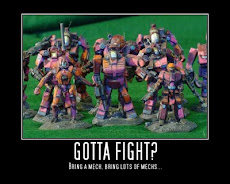I asked myself what is the difference between both, as could think of quite a few? First off, a testimonial is, practically by definition, a positive endorsement of something, or someone. There's nothing wrong with that, but everyone understands that it is all about singing the praises, so it has limited value, because it only tells you one side of the story.
A review has a different function as it looks at both what is good and bad about what is being reviewed. In academic terms a review will search for other work that covers the same topic and summarise those reviews, which turn was a review that had searched for previous works that had discussed the same topic. As can be imagined this is quite a recursive process, but what saves it from becoming stodgy is the critical element that removes weaker work in favour of stronger work. So through trial and error a researcher can weight the evidence, and look at the balance of probability to hone theories to see if they fit the facts, which is the academic equivalent of the Darwinian process in action.
So what purpose would a game review serve? Does it comment on the production values, the game mechanisms, the playability, or the experiential process? I would argue that it would need to address all of these things, and probably a few more like value for money, support for the game and accessibility for the new player too.
However, such a review would be a monumental piece of work, so what you tend to get is an edited highlights of the reviewers concerns about the game, rather than a more objective review that places the game in its historical context.
Then there is the thorny issue of offending the games company, and a writer will offend if they are perceived as being critical and damaging sales of the game. This is mirrored in academia where the issue of who is funding the research colours how much you can trust the results of the research. It's called bias, and research reviews have to declare their biases. When was the last time you read a review in the commercial press where the reviewer declared there bias?
Ah I hear you say, what about the non-funded reviews posted on the internet for example? A good point, but more often than not they fall into testimonials that say they like the product, or a hate-fest where they say this product sucks, because it does not meet the reviewers needs. Neither are particularly useful to either the buyer, or the manufacturer of the game.
Hence my reluctance to really review games that I like, but as and when I have the time to analyse my biases, do a search of previous games in a genre, and summarise the game mechanisms, playability and experiential quality of said game, I will.
Hence my reluctance to really review games that I like, but as and when I have the time to analyse my biases, do a search of previous games in a genre, and summarise the game mechanisms, playability and experiential quality of said game, I will.








.png)





I have a few computer gaming magazines from the early '90s that I pull out every so often. The reviews in those are written much the same way most online reviews are written now: the casual voice of someone who obviously enjoys these games, giving the highlights of the their own (generally positive) concerns. But the field was so much smaller then, and the audience's experiences less varied, that it was much easier to put the game in its historical context and do so authoritatively.
ReplyDeleteRatings creep is a known issue on video game review sites, accepted to the point that a large part of their audience (not me) knows how to much to compensate the score of each site, and (I think) there's meta-review sites that account for the inflation and create an aggregate score. I haven't noticed reviewers stating their biases up front, but neither have I noticed them hiding them, and most write in a casual enough manner that you can tell one way or the other.
From a societal perspective, this will all just be part of learning to be savvy in a connected and communicative world.
From the perspective of a present-day reviewer, as you say, it is time-consuming to produce a review that is helpful to the manufacturer or an uninformed buyer.
From the perspective of myself reading your blog, I look forward to any review you care to write, at any future date you care to write.
(First look: oh, an unseen.
Second look: Wolverine? BattleMaster?
Third look: Not an unseen! Bushman! It's a Bushman!)
Is that built from bits, or did you find one in the right scale?
Plastic gashapon I found from a Hong Kong dealer on eBay, which is serendipitously the right scale for BattleTech. I have more than one Bushman too, and the range also includes Griffins, Shadow Hawks and a few others from the Dougram show, which are all really lovely little models.
ReplyDelete